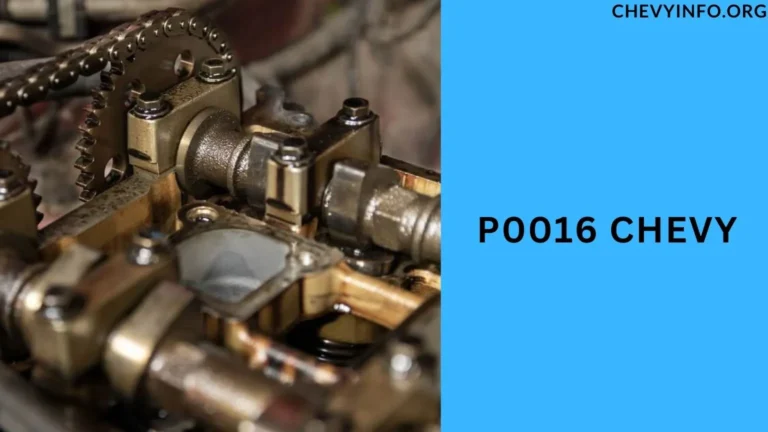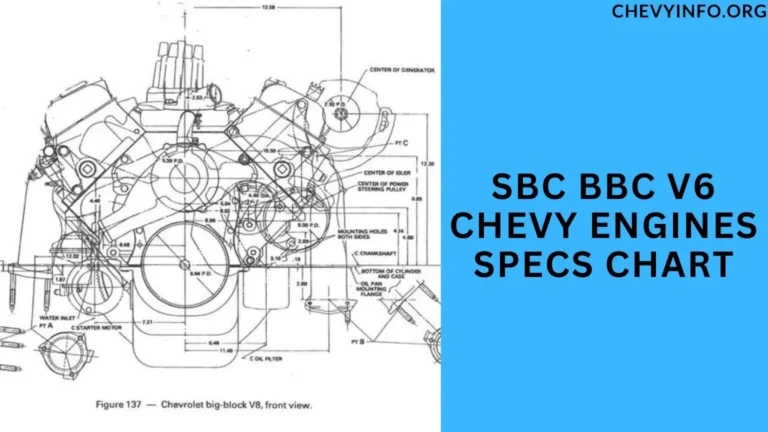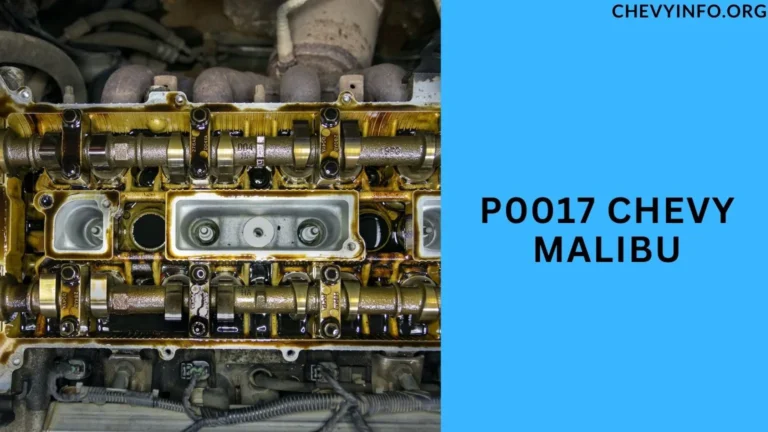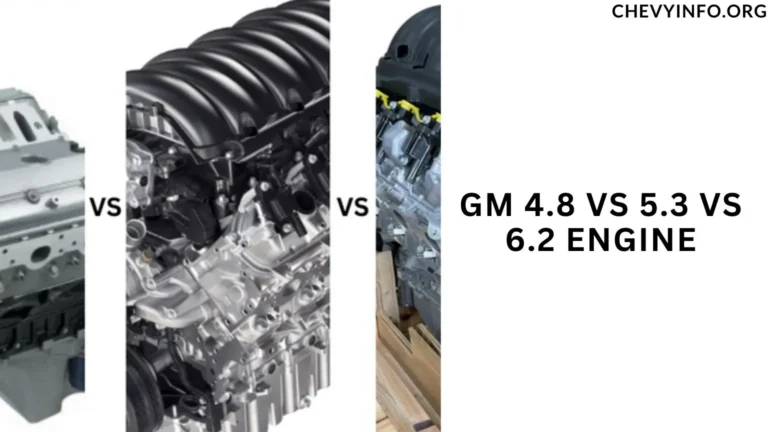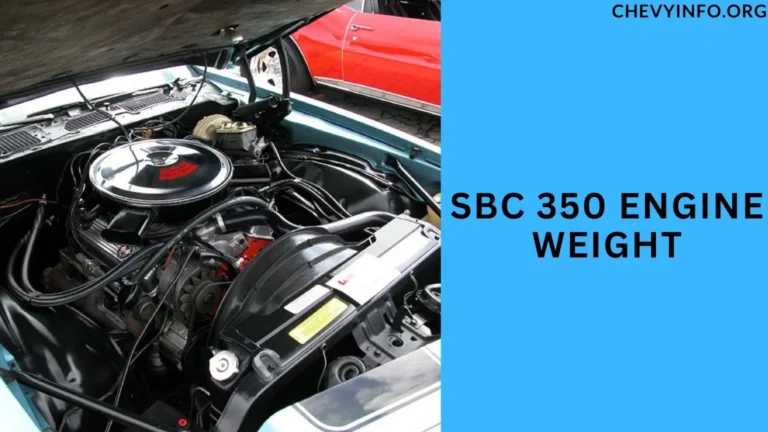Chevy 350 VS 305 Engine (Difference Explained) of 2024
When it comes to choosing between the Chevy 350 VS 305 engines, enthusiasts often find themselves in a dilemma.
Both engines have their strengths and weaknesses, making it essential to understand their specifications, performance, and applications.
In this article, we delve into the details of these iconic engines to help you make an informed decision.
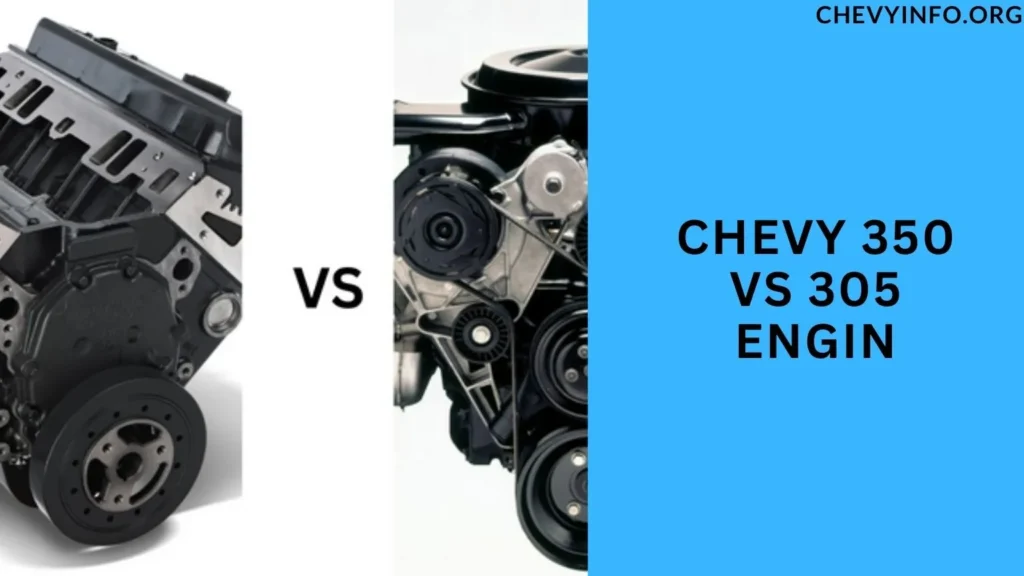
Introduction to Chevy 350 and Chevy 305 Engines
The Chevy 350 and Chevy 305 engines are renowned for their performance and reliability. The Chevy 350, also known as the Chevrolet Small-Block V8, has a long history dating back to the 1950s.
It has been a popular choice for a wide range of vehicles, from sports cars to trucks, due to its robust power delivery and versatility.
On the other hand, the Chevy 305, part of the Small-Block V8 family as well, is slightly smaller in displacement and has been used in various GM vehicles over the years.
Specifications of Chevy 350 Engine
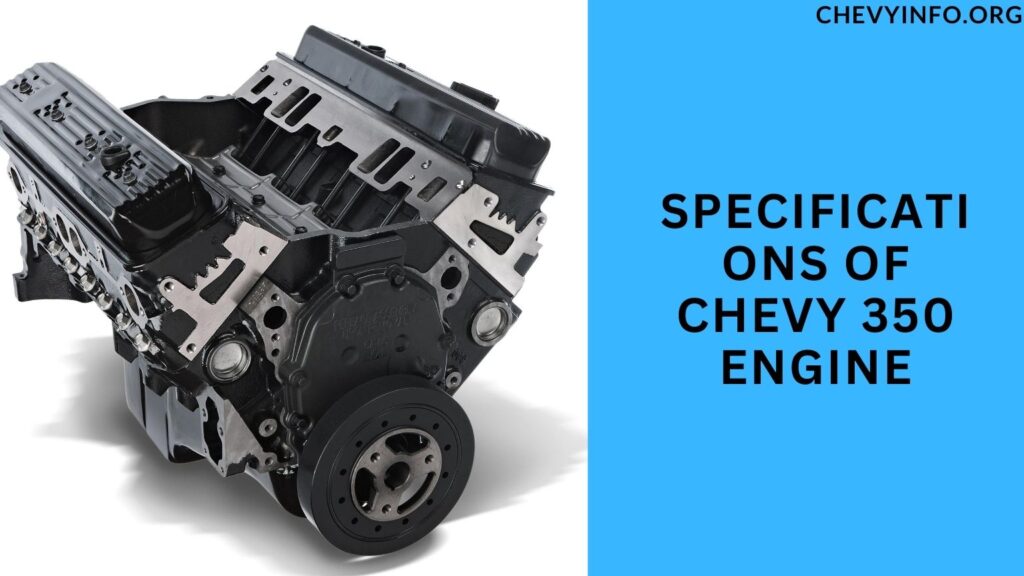
When comparing the specifications of the Chevy 350 and Chevy 305 engines, several key differences emerge.
The Chevy 350 typically delivers higher power output and torque compared to the Chevy 305, making it a preferred choice for performance enthusiasts.
However, the Chevy 305 offers better fuel efficiency in some scenarios, thanks to its smaller displacement.
Horsepower and Torque
The Chevy 350 engine is renowned for its robust performance, delivering impressive horsepower and torque.
With horsepower ranging from 250 to 370 HP and torque between 350 and 400 lb-ft, this engine offers excellent power output across a wide RPM range.
Fuel Efficiency
Despite its powerful performance, the Chevy 350 engine manages to maintain decent fuel efficiency, making it suitable for daily driving and performance applications alike.
Performance Upgrades
One of the key advantages of the Chevy 350 engine is its extensive aftermarket support. Enthusiasts can easily upgrade this engine with performance parts such as camshafts, intake systems, and exhaust upgrades to unleash its full potential.
Cost
The cost of a Chevy 350 engine can range from $2,500 to $4,000 for parts and labor, depending on factors such as the engine’s condition, brand, and any additional upgrades or modifications included in the installation process.
Specifications of Chevy 305 Engine
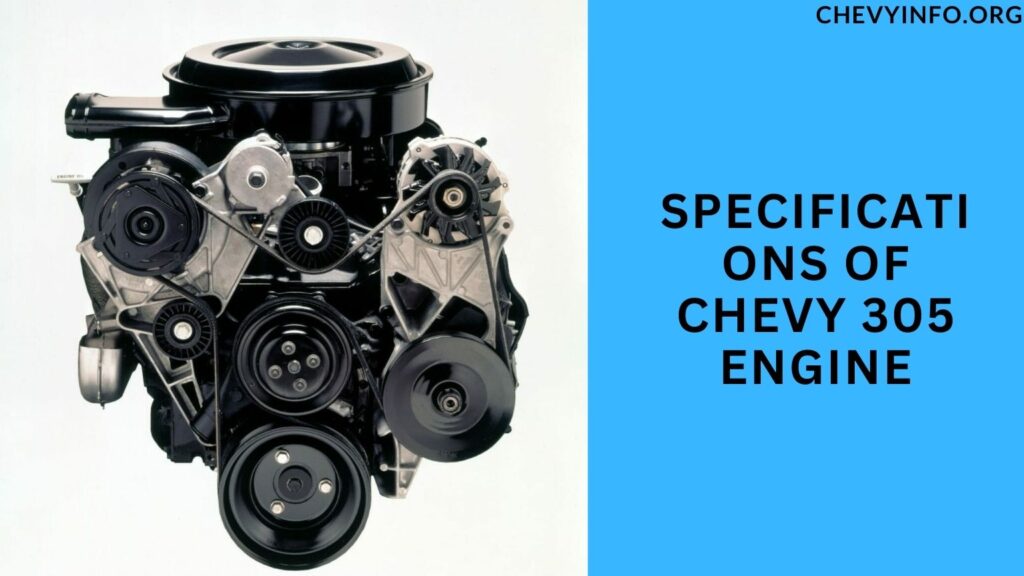
The specifications of the Chevy 305 engine include:
Horsepower and Torque
Compared to the Chevy 350, the Chevy 305 engine tends to have slightly lower horsepower and torque figures. Typically, it produces between 130 and 230 HP and torque ranging from 220 to 300 lb-ft.
Fuel Efficiency
The Chevy 305 engine is known for its fuel-efficient nature, making it a practical choice for daily commuters and vehicles where fuel economy is a priority.
Performance Upgrades
While the aftermarket support for the Chevy 305 engine is available, it may not offer as many high-performance upgrades as the Chevy 350.
However, enthusiasts can still enhance its performance with modifications like improved intake systems and exhaust setups.
Comparison of Chevy 350 vs. 305 Engines
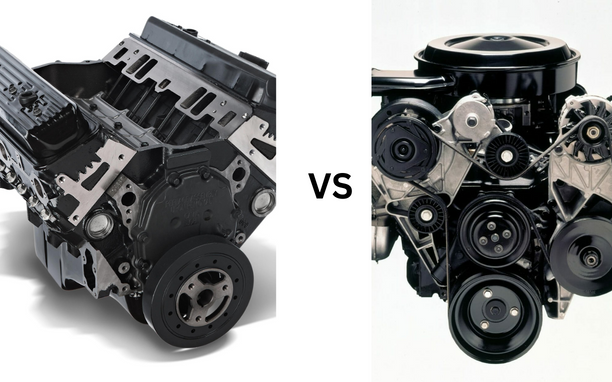
When comparing the Chevy 350 and Chevy 305 engines, several key differences and similarities emerge, influencing factors such as performance, fuel efficiency, and overall suitability for different applications. Here’s a comprehensive comparison:
Power and Torque Output
The primary difference between the Chevy 350 and 305 engines lies in their power and torque output.
The Chevy 350 offers significantly higher performance, making it ideal for applications where power is crucial, such as muscle cars and performance-oriented vehicles.
Fuel Consumption
Due to its larger displacement and higher power output, the Chevy 350 engine tends to consume more fuel than the Chevy 305.
However, advancements in technology have improved the fuel efficiency of both engines over the years.
Reliability and Durability
Both engines are known for their reliability and durability, with proper maintenance and care. However, the Chevy 350 engine’s robust construction and larger components may offer slightly better longevity under strenuous conditions.
Cost of Maintenance and Repairs
In terms of maintenance and repairs, the Chevy 305 engine may have a slight edge due to its simpler design and lower complexity. However, the overall cost can vary depending on factors such as parts availability and labor charges.
Upgrades and Modifications
Enthusiasts often opt to upgrade and modify both the Chevy 350 and 305 engines for increased performance. However, the larger displacement of the 350 allows for more significant modifications and enhancements.
Pros and Cons With Chevy 350 vs 305
Chevy 350
- Pros:
- Higher horsepower and torque
- Greater performance capabilities
- Widely available parts
- Cons:
- Higher initial cost
- Slightly lower fuel efficiency compared to the 305
Chevy 305
- Pros:
- Good fuel efficiency
- Lower initial cost
- Suitable for everyday driving
- Cons:
- Limited performance compared to the 350
- Challenges in finding specific parts
Popular Applications of Chevy 350 and Chevy 305 Engines
The Chevy 350 engine is commonly found in a wide range of vehicles, including classic cars, trucks, and high-performance applications. On the other hand, the Chevy 305 engine is often used in compact cars, light trucks, and vehicles prioritizing fuel efficiency.
Maintenance Factors
When considering cost and maintenance, potential buyers need to weigh the initial investment against long-term expenses.
The Chevy 350 may have a higher upfront cost due to its performance capabilities and popularity, but its parts are widely available, easing maintenance and repairs.
In contrast, the Chevy 305 may be more affordable initially but could face challenges with aftermarket support and specialized parts.
Applications and Uses
The applications of Chevy 350 and Chevy 305 engines vary based on vehicle type and intended use.
The Chevy 350 is commonly found in muscle cars, hot rods, and high-performance trucks, where its impressive power and torque can be fully utilized.
Meanwhile, the Chevy 305 is often seen in passenger cars and lighter-duty trucks, offering a balance between performance and fuel efficiency.
Ideal Vehicles for Each Engine
The Chevy 350 is often preferred for high-performance vehicles, trucks, and muscle cars, where its power and capabilities shine.
On the other hand, the Chevy 305 is suitable for everyday commuting vehicles and light-duty applications.
Performance in Different Driving Conditions
Both engines perform well in various driving conditions, but the 350’s extra power can be advantageous in demanding situations such as towing or off-road driving.
People also ask
What’s the difference between a 305 and a 350 Chevy?
The main differences between a Chevy 305 and a Chevy 350 are their engine size and displacement.
The 350 has a larger displacement of 5.7 liters (350 cubic inches) compared to the 305’s 5.0 liters (305 cubic inches).
This leads to differences in horsepower, torque, and overall performance, with the 350 generally offering more power and better performance capabilities.
How much HP can a Chevy 305 make?
A Chevy 305 engine typically produces around 170 to 200 horsepower in stock form, depending on the specific model and configuration.
Is a Chevy 305 a good motor?
The Chevy 305 is considered a decent motor for everyday driving and lighter applications due to its reasonable power output and fuel efficiency.
However, for high-performance or heavy-duty use, many enthusiasts prefer engines with larger displacements, such as the Chevy 350, for better performance capabilities.
Can you make a 305 into a 350?
Converting a Chevy 305 into a Chevy 350 involves significant modifications, including changing the crankshaft, pistons, and possibly the cylinder heads.
It’s a complex and costly process that may require professional expertise and extensive engine knowledge.
Conclusion
In conclusion, both the Chevy 350 and Chevy 305 engines offer unique advantages based on specific requirements.
The Chevy 350 excels in power and performance, making it a favorite among enthusiasts seeking high-performance upgrades.
On the contrary, the Chevy 305 prioritizes fuel efficiency without compromising on reliability, making it suitable for daily driving and economy-focused applications.

Henry Worner, a seasoned automotive expert with over 13 years of experience in car repair, maintenance, and performance enhancement, ChevyInfo.org was born out of a passion for Chevrolet vehicles. Henry’s deep-rooted love for everything Chevy has driven him to create a platform where fellow enthusiasts, car owners, and anyone interested in Chevy cars can find valuable insights, tips, and guidance.

